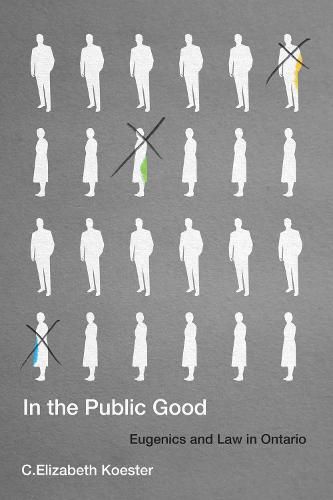Readings Newsletter
Become a Readings Member to make your shopping experience even easier.
Sign in or sign up for free!
You’re not far away from qualifying for FREE standard shipping within Australia
You’ve qualified for FREE standard shipping within Australia
The cart is loading…






This title is printed to order. This book may have been self-published. If so, we cannot guarantee the quality of the content. In the main most books will have gone through the editing process however some may not. We therefore suggest that you be aware of this before ordering this book. If in doubt check either the author or publisher’s details as we are unable to accept any returns unless they are faulty. Please contact us if you have any questions.
In the early twentieth century, the eugenics movement won many supporters with its promise that social ills such as venereal disease, alcoholism, and so-called feeble-mindedness, along with many other conditions, could be eliminated by selective human breeding and other measures. The provinces of Alberta and British Columbia passed legislation requiring that certain unfit individuals undergo reproductive sterilization. Ontario, being home to many leading proponents of eugenics, came close to doing the same.
In the Public Good examines three legal processes that were used to advance eugenic ideas in Ontario between 1910 and 1938: legislative bills, provincial royal commissions, and the criminal trial of a young woman accused of distributing birth control information. Taken together, they reveal who in the province supported these ideas, how they were understood in relation to the public good, and how they were debated. Elizabeth Koester shows the ways in which the law was used both to promote and to deflect eugenics, and how the concept of the public good was used by supporters to add power to their cause.
With eugenic thinking finding new footholds in the possibilities offered by reproductive technologies, proposals to link welfare entitlement to voluntary sterilization, and concerns about immigration, In the Public Good adds depth to our understanding. Its exploration of the historical relationship between eugenics and law in Ontario prepares us to face the implications of newgenics today.
$9.00 standard shipping within Australia
FREE standard shipping within Australia for orders over $100.00
Express & International shipping calculated at checkout
This title is printed to order. This book may have been self-published. If so, we cannot guarantee the quality of the content. In the main most books will have gone through the editing process however some may not. We therefore suggest that you be aware of this before ordering this book. If in doubt check either the author or publisher’s details as we are unable to accept any returns unless they are faulty. Please contact us if you have any questions.
In the early twentieth century, the eugenics movement won many supporters with its promise that social ills such as venereal disease, alcoholism, and so-called feeble-mindedness, along with many other conditions, could be eliminated by selective human breeding and other measures. The provinces of Alberta and British Columbia passed legislation requiring that certain unfit individuals undergo reproductive sterilization. Ontario, being home to many leading proponents of eugenics, came close to doing the same.
In the Public Good examines three legal processes that were used to advance eugenic ideas in Ontario between 1910 and 1938: legislative bills, provincial royal commissions, and the criminal trial of a young woman accused of distributing birth control information. Taken together, they reveal who in the province supported these ideas, how they were understood in relation to the public good, and how they were debated. Elizabeth Koester shows the ways in which the law was used both to promote and to deflect eugenics, and how the concept of the public good was used by supporters to add power to their cause.
With eugenic thinking finding new footholds in the possibilities offered by reproductive technologies, proposals to link welfare entitlement to voluntary sterilization, and concerns about immigration, In the Public Good adds depth to our understanding. Its exploration of the historical relationship between eugenics and law in Ontario prepares us to face the implications of newgenics today.